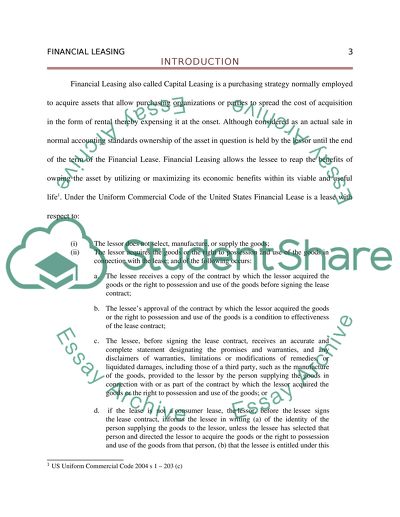Cite this document
(“Financial Leasing in the Context of Uniform Commercial Code of the Essay”, n.d.)
Retrieved de https://studentshare.org/law/1390730-financial-leasing-in-the-context-of-uniform-commercial-code-of-the-united-states
Retrieved de https://studentshare.org/law/1390730-financial-leasing-in-the-context-of-uniform-commercial-code-of-the-united-states
(Financial Leasing in the Context of Uniform Commercial Code of the Essay)
https://studentshare.org/law/1390730-financial-leasing-in-the-context-of-uniform-commercial-code-of-the-united-states.
https://studentshare.org/law/1390730-financial-leasing-in-the-context-of-uniform-commercial-code-of-the-united-states.
“Financial Leasing in the Context of Uniform Commercial Code of the Essay”, n.d. https://studentshare.org/law/1390730-financial-leasing-in-the-context-of-uniform-commercial-code-of-the-united-states.


